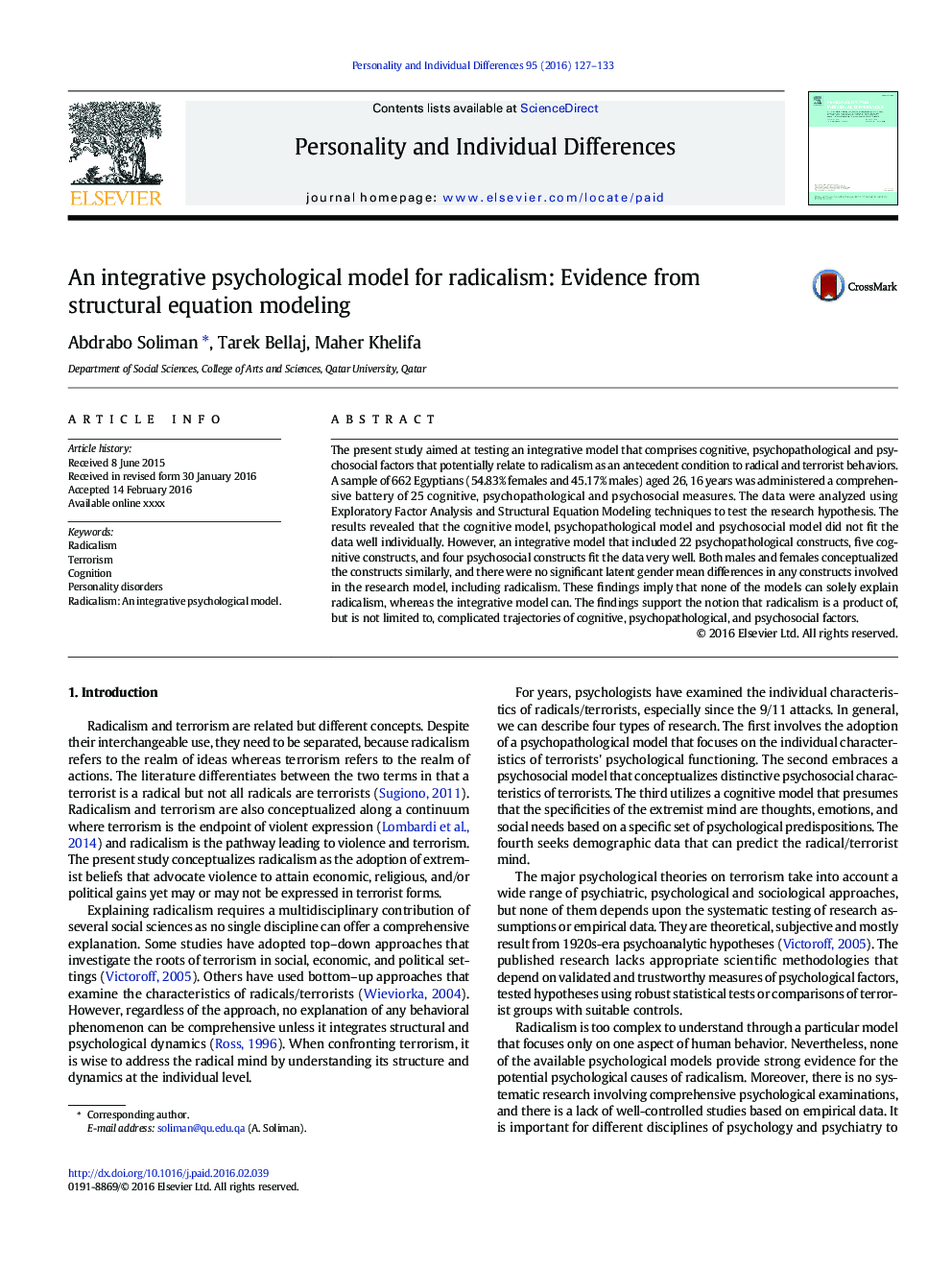| Article ID | Journal | Published Year | Pages | File Type |
|---|---|---|---|---|
| 7250277 | Personality and Individual Differences | 2016 | 7 Pages |
Abstract
The present study aimed at testing an integrative model that comprises cognitive, psychopathological and psychosocial factors that potentially relate to radicalism as an antecedent condition to radical and terrorist behaviors. A sample of 662 Egyptians (54.83% females and 45.17% males) aged 26, 16Â years was administered a comprehensive battery of 25 cognitive, psychopathological and psychosocial measures. The data were analyzed using Exploratory Factor Analysis and Structural Equation Modeling techniques to test the research hypothesis. The results revealed that the cognitive model, psychopathological model and psychosocial model did not fit the data well individually. However, an integrative model that included 22 psychopathological constructs, five cognitive constructs, and four psychosocial constructs fit the data very well. Both males and females conceptualized the constructs similarly, and there were no significant latent gender mean differences in any constructs involved in the research model, including radicalism. These findings imply that none of the models can solely explain radicalism, whereas the integrative model can. The findings support the notion that radicalism is a product of, but is not limited to, complicated trajectories of cognitive, psychopathological, and psychosocial factors.
Related Topics
Life Sciences
Neuroscience
Behavioral Neuroscience
Authors
Abdrabo Soliman, Tarek Bellaj, Maher Khelifa,
